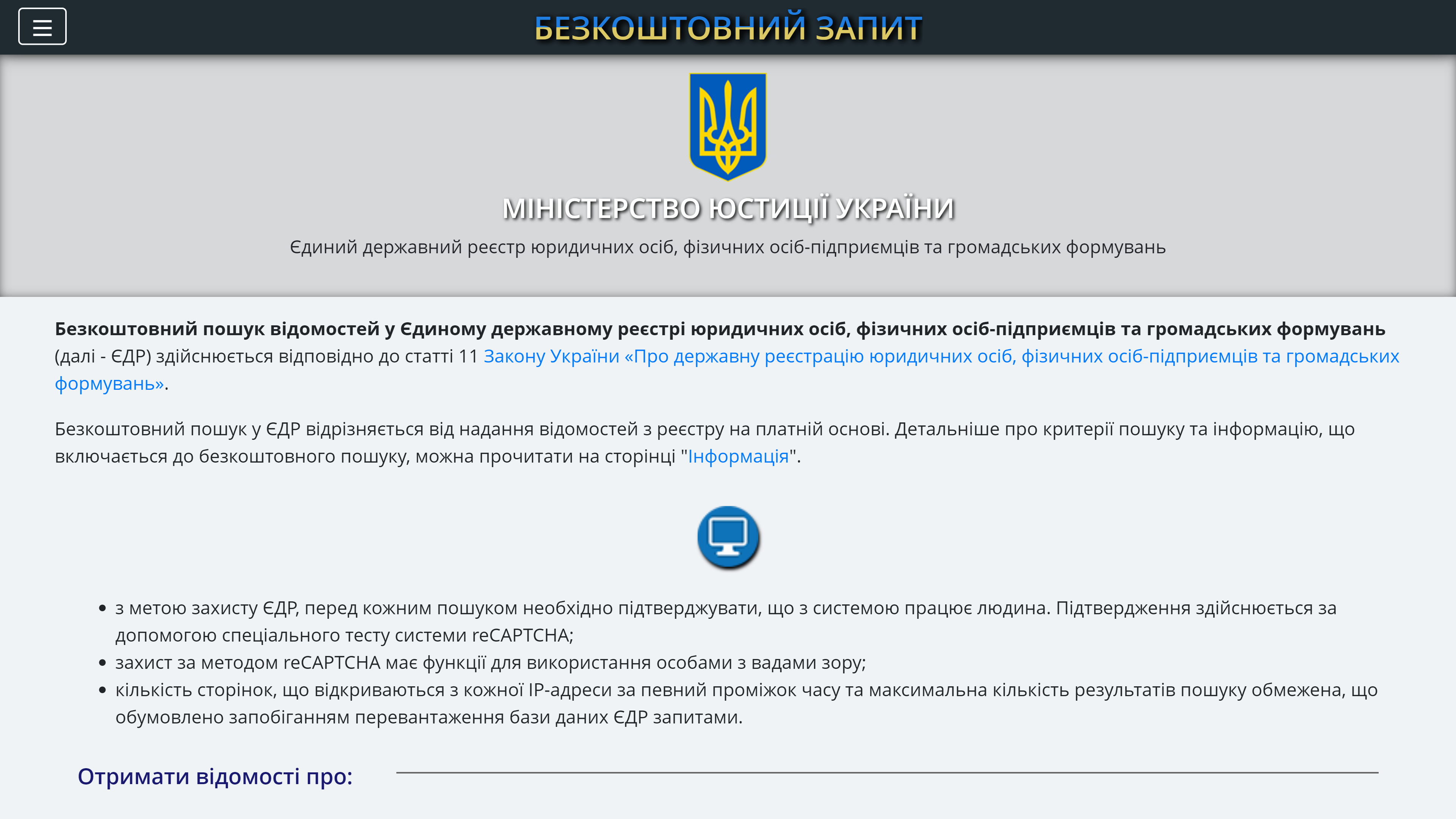Early impacts of public beneficial ownership registers: Ukraine
Introduction
Ukrainian president Victor Yanukovich was unseated in February 2014, following the Revolution of Dignity.[a] It soon became clear that he had been systematically looting hundreds of millions of dollars from his own country.[1] Yanukovich was not the only one. In the 1990s and early 2000s, Ukraine was repeatedly referred to as a kleptocracy.[2] In October 2014, a combination of pressures, including Ukrainians’ demand for change, conflict with Russia, and conditions on international support, led Parliament to pass a series of anti-corruption laws.[3] These included a commitment to creating a central, publicly accessible beneficial ownership (BO) register for all legal entities in its economy. This made Ukraine one of the first countries to commit to beneficial ownership transparency (BOT), a policy reform that is now widely viewed as fundamental for preventing legal persons and arrangements from being used for tax evasion, money laundering, corruption, and other financial crimes.[4]
In 2015, Ukraine became the first country in the world to launch a public register of the beneficial owners of corporate entities registered in the country.[5] It was also the first to commit to integrating the data in its register into the Open Ownership Register (OO Register), which links information from multiple countries’ BO registers and allows anyone to search it.[6] Ukraine’s early commitment to and delivery of a BO register was groundbreaking, and today the register is still exemplary for its accessibility. For comparison, a 2021 analysis showed that a year after the European Union (EU)’s Fifth Anti-Money Laundering Directive (AMLD5) deadline of January 2020 to make BO registers public, nine EU countries still did not have public registers in place, and many that do have paywalls, registration requirements, or search parameters that effectively limit access.[7] Ukraine’s open register has enabled organisations outside the government to use and evaluate the quality of the BO data being collected and to combine it with other datasets to achieve insights that support the anti-corruption agenda. Nevertheless, progress in Ukraine remains fragile, and momentum on full implementation and verification of BO data must be sustained if Ukraine’s ambitious commitment to BOT is to deliver its intended policy impact.
Unified State Register of Legal Entities, Individual Entrepreneurs, and Civic Formations

| Established | 2015 |
|---|---|
| Scope | Legal entities, natural persons (entrepreneurs), public and not-for-profit organisations, and trusts |
| Beneficial owners registered | 705,792 |
| Companies registered | 1,876,082[b] |
| Data on the Open Ownership Register | Yes |
As of February 2022. Accessible via: https://usr.minjust.gov.ua/content/free-search
We set the ambitious goal to ensure transparency and openness of all processes of our country… Creating [a global] register is a true breakthrough in transparency and the fight against corruption in business.
Pavlo Petrenko, Former Minister of Justice of Ukraine, 2017[c]
Footnotes
[a] Also called the Euromaidan Revolution of 2013-2014, the Revolution of Dignity began in protest of then-president Yanukovych’s pivot away from signing an Association Agreement with the European Union, but evolved into a revolution aimed at overthrowing Yanukovych. See: William Jay Risch, “Remembering Ukraine’s Revolution of Dignity”, openDemocracy, 18 February 2020, https://www.opendemocracy.net/en/odr/remembering-ukraines-revolution-of-dignity/.
[b] 511,130 of these have reported at least one beneficiary.
[c] In reference to Ukraine’s commitment to including its data in the Open Ownership Register. See: Tom Mayne and Zosia Sztykowski, “Improving beneficial ownership transparency in Ukraine: Review and recommendations”, Open Ownership, March 2018, 8, https://www.openownership.org/resources/improving-beneficial-ownership-transparency-in-ukraine/
Endnotes
[1] Oliver Bullough, Moneyland: Why Thieves And Crooks Now Rule The World And How To Take It Back (London: Profile Books Ltd, 2018), 4.
[2] Yuriy Onyshkiv, “Clearer Picture”, Kyiv Post, 2 September 2011, https://www.kyivpost.com/article/content/ukraine-politics/clearer-picture-112083.html?cn-reloaded=1.
[3] Vladimir Dubrovskiy and John Lough, “Are Ukraine’s Anti-corruption Reforms Working?”, Chatham House, November 2018, https://www.chathamhouse.org/sites/default/files/publications/research/2018-11-19-ukraine-anti-corruption-reforms-lough-dubrovskiy.pdf.
[4] “Building Effective Beneficial Ownership Frameworks: A joint Global Forum and IDB Toolkit”, Global Forum on Transparency and Exchange of Information for Tax Purposes, IDB, and OECD, 2021, https://www.oecd.org/tax/transparency/documents/effective-beneficial-ownership-frameworks-toolkit_en.pdf.
[5] Anti-Corruption Action Centre, “Beneficial owner: What is inside Ukrainian business register”, n.d., https://project.liga.net/projects/beneficiar/index_en.html.
[6] Tom Mayne and Zosia Sztykowski, “Improving beneficial ownership transparency in Ukraine: Review and recommendations”, Open Ownership, March 2018, https://www.openownership.org/uploads/oo-improving-beneficial-ownership-transparency-in-ukraine-2020-01.pdf.
[7] Adriana Fraiha Granjo and Maíra Martini, “Access denied? Availability and accessibility of beneficial ownership data in the European Union”, Transparency International, 2021, https://images.transparencycdn.org/images/2021-Report-Access-denied-Availability-and-accessibility-of-beneficial-ownership-data-in-the-European-Union.pdf.